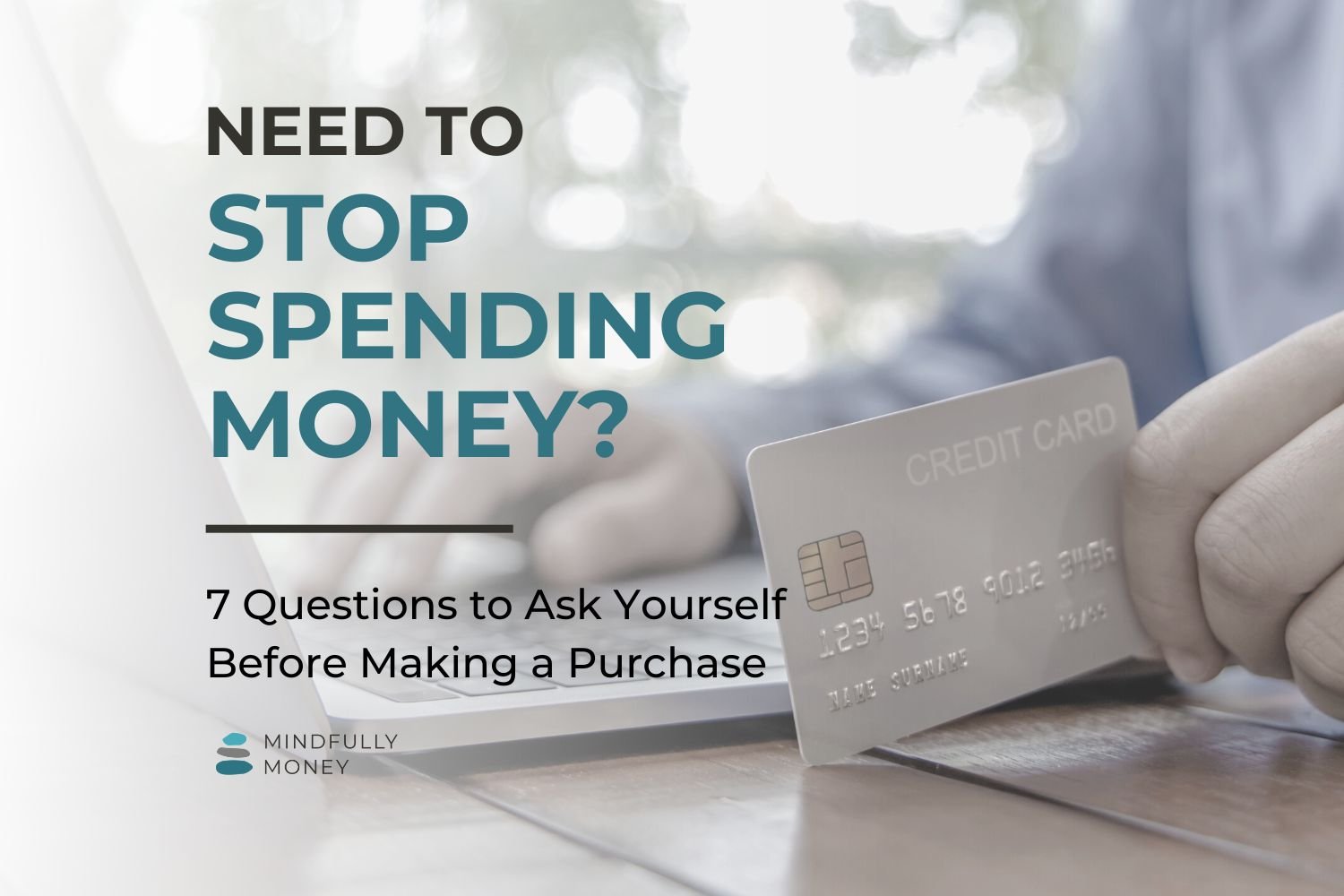Taking Control of Your Finances: Empowering Yourself in an Unpredictable World
Lately, I’ve noticed a significant sense of hopelessness when it comes to the way people talk and think about their money. It’s evident in personal finance articles, on social media, and even in the comments on my TikTok videos. Many people look at everything going on in the world around them and feel like nothing they do makes any difference.
It’s understandable if you feel this way.
The last few years have been filled with many uncontrollable and unpredictable forces: inflation, war, pandemic, political turmoil, and more. People have even claimed that saving for retirement is pointless due to factors like climate change. Additionally, there's a media narrative suggesting that Millennials are financially doomed, having graduated during a recession and experienced financial hardships during their prime working years.
It’s no wonder many people have given up.
But while this sense of hopelessness is understandable, it’s important to realize that this is not the full story:
Some aspects of your financial life may be beyond your control, but there are still plenty of actions you can take to improve your situation. You have the ability to empower yourself and make a positive impact, even in the face of uncontrollable circumstances.
Strategies for Regaining Control Over Your Financial Future
1. Distinguish between things you can control and things you can’t control.
In personal finance, it's crucial to understand the difference between aspects within our control and those outside our control. We can't control the economy, inflation, or the job market. However, we have the power to choose how we respond to these circumstances, make financial decisions, and shape our financial attitudes and beliefs.
By acknowledging the distinction between things you can control and things you can’t, you can redirect your focus and energy towards actions that will have a meaningful impact on your financial well-being.
2. Shift your mindset from one of powerlessness to one of empowerment.
When you feel like the world is against you, it’s easy to feel defeated and give up.
Henry Ford is famous for saying “Whether you think you can, or you think you can't – you're right.”
While this ignores the circumstances beyond your control, there is also an element of truth in it: if you believe that you can’t change or control your situation, you will likely be stuck there.
Changing your circumstances starts by believing that change is possible. Once you believe that change is possible, you will be more likely to take actions that will transform your financial situation.
3. Take action in the areas you can control.
Instead of spending your time worrying about things you can’t control, focus your energy on the things you can. This will help you feel much more control in your life, reduce stress and worry, and help you improve your financial situation.
Things You Can Control
1. Keeping track of your money and making a plan
Having a strategy for managing your money (such as a budget) is one of the most effective ways to take control of your finances. When you can clearly see how much you have coming in and where it all goes, you can make more intentional decisions.
When you have a system, you can see areas where you might need or want to cut back on spending and you can find ways to free up money for things that are more important to you.
2. What you buy
It’s true that there are certain things that it would be hard to live without. We all need a safe place to live, a way to feed ourselves, water, basic clothing, and whatever we need in order to have income and resources.
But most of us have way more control over what we buy than we think.
For example, when it comes to food, you can decide:
To shop at a cheaper store
To buy store brands
To pay attention to sales and discounts
To make recipes that require less expensive ingredients
To cook more at home
People who commit to spending less so they can pay off debt, increase savings, or achieve any other goals have done some pretty amazing things to cut spending.
The point of this isn’t that you should never buy what you want. If you have the money for it (and it’s not threatening your financial security), you can buy anything you want. In fact, you shouldn’t cut every ounce of joy from your life and budget because it’s not sustainable.
But cutting back on things you buy so that you can increase your financial security and do more of what you really love is key to financial success and well-being.
3. Paying off debt
Being in debt often feels overwhelming and out of your control because of the compounding interest. What helps is developing a debt payoff strategy.
Start by taking stock of your situation, but writing down your debts, the interest rates, minimum payments, and total amount outstanding. Then pay the minimums on all debts while putting as much extra money as possible toward one of the debts. Once that’s paid off, take the amount you were paying and put it toward another debt.
While prioritizing debts with the highest interest rate is mathematically the fastest and least expensive way to pay off debt, many people have success by starting with the debt with the lowest balance first or by choosing the one that makes them feel the worst.
What’s more important than the order in which you pay off debts is that you have a strategy at all. This will make you feel much more in control and give you clarity over what you need to do.
4. How much you save and invest
Do you know what the number one difference is between people who have retirement savings and those who don’t? It’s not being good at investing. It’s the act of putting money in a retirement account regularly over long periods of time.
(Yes, investing helps it grow, but it can’t grow if you don’t put anything in it. Work with a qualified investment advisor to develop a strategy that is right for you.)
It’s true that many people struggle to save money because they are working three jobs and still can’t make ends meet, they developed an expensive medical condition, or lost their ability to work.
Many factors that are beyond an individual's control make it hard, if not impossible, to save.
But be honest with yourself: are you not saving because you’re struggling to put food on the table or because you’ve prioritized spending money on other things?
Don’t underestimate the power of taking (even tiny) action regularly for long periods of time. Even putting $5 per month in a savings account helps create the habit and changes you from being a person who is a victim of circumstances to one who is taking control of your destiny.
5. Learning
Educating yourself about personal finance empowers you to make informed financial decisions and adapt to changing circumstances.
Read a personal finance blog, follow someone who knows what they are talking about on social media (links to my profiles below), sign up for my email newsletter, or take a class.
Don’t let lack of knowledge hold you back from moving forward.
4. Get help from a trusted financial professional.
Many people refrain from getting help with their finances because they believe they should be able to figure it out on their own, they’ve had trouble finding someone to help them, or they’ve had a bad experience with a financial professional.
It may not always be easy to find the right kind of help, but it is worth it to try.
A financial coach can help you identify your goals, create a spending plan, find more ways to save, transform your money mindset, and help you design a money system that works for you.
A financial planner (CFP) can help you invest wisely, plan for life transitions, protect you from financial risks, and manage your wealth.
Stay away from financial professionals who are only paid by commission on life insurance or other financial products. You want someone who makes recommendations that are in your best interest—not their own.
Although it may feel like the odds are against you, you have the ability to take control of your finances. When feeling helpless, start by identifying the aspects you can control and take action from there. Remember, even small steps taken consistently over time can lead to significant transformation.







